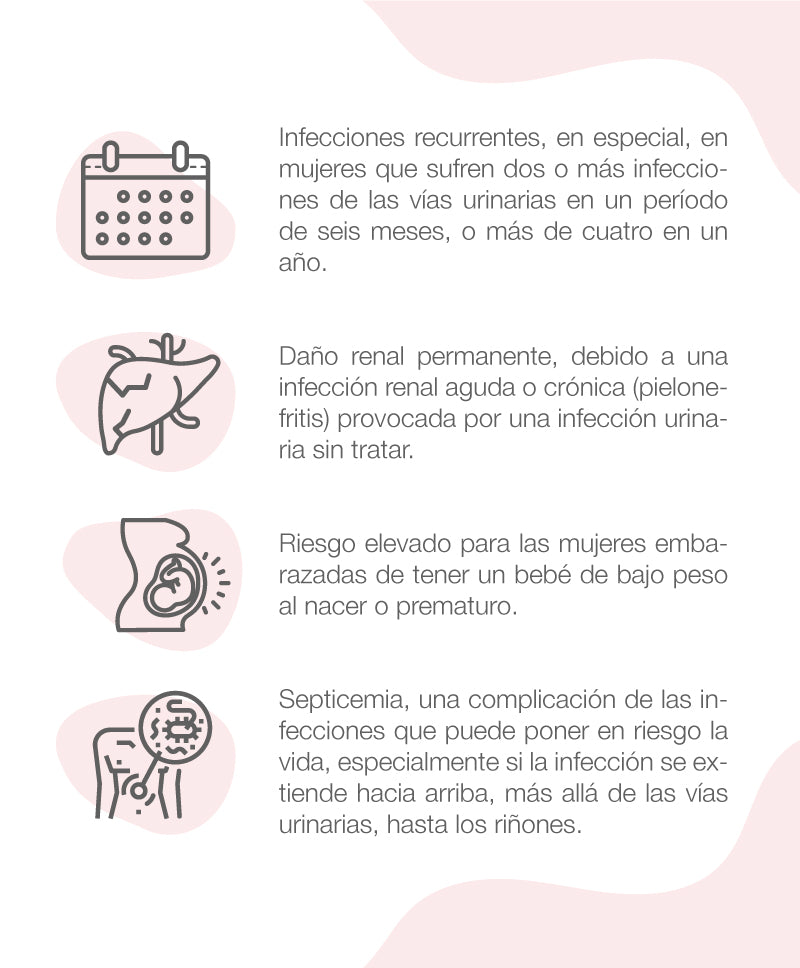Urinary infections during menstruation

Urinary infections during menstruation are quite common; Therefore, it is not surprising to feel intense pain when urinating when you are “on those days.”
The cause of these infections is bacteria. And the most common is E-Coli, present in the intestine and within reach of the urethra, which often leads to cystitis or inflammation of the bladder. Due to the female anatomy they are more common in them.
Keep reading to learn about urinary tract infections from all angles so you can avoid them during your period. The idea is to help you maintain your well-being, no matter what day of the month it is.
Why do urinary tract infections occur during menstruation?
Urinary infections or cystitis are an infection of the bladder and urethra, organs that expel urine from the body. It can be caused by any type of microorganism: bacteria, viruses, fungi or parasites, although it is most frequently bacterial.
Women tend to suffer more from intimate infections due to the anatomy of their lower urinary system, with the pelvis, urethra, bladder, uterus and rectum being in a very small sector.
Furthermore, the female urethra is very short and its end is located inside the vagina, a place populated by bacteria that when they move to the bladder or urethra, are very aggressive and cause infections.
To this we add that, during menstruation, the production of estrogen and progesterone increases, the pH also becomes unbalanced as a result of the elimination of cellular debris and the formation of endometrial scales.
This causes the temperature and humidity to promote an ideal environment for bacteria to develop and there is a greater possibility of having infections in the vaginal region.
What are the symptoms of urinary tract infections?
Your first urine infection can be a scary experience, and once you've had one, you'll definitely know when you get another one.

Important: Seek medical attention immediately if you have fever, chills, nausea, or vomiting.
Factors that predispose to urinary infections
There are triggering situations that increase the likelihood of urinary tract infections. Here I mention some:

How is a urinary tract infection diagnosed?
Doctors rely on the patient's medical history, a physical examination, and diagnostic tests. They ask if there is a history of health problems that cause a propensity for any type of urinary tract infection, as well as the symptoms.
Additionally, they can request:
- Urinalysis: A sample of urine is obtained in a special container in the doctor's office or a laboratory. From there, the bacteria and white blood cells that the body produces to fight infections are analyzed. Bacteria can also be found in the urine of healthy people, so a urinary tract infection is diagnosed by taking lab results plus symptoms.
- Urine culture: In some cases, a urine culture may be needed to see what type of bacteria is causing the infection. It is recommended when you have repeated infections or certain medical problems.
Can there be complications as a result of a urinary infection?
When treated quickly and properly, complications from lower urinary tract infections are rare. But if left untreated or treated incorrectly, it can have serious consequences.
Complications of a urinary tract infection may include:

Can a urinary tract infection be prevented?
The answer is yes. To do this, you can take the following measures:

Remember: if you have any health problem, go to a doctor, especially if you have a urine infection or discomfort in your intimate area. Self-medication is not an alternative.



